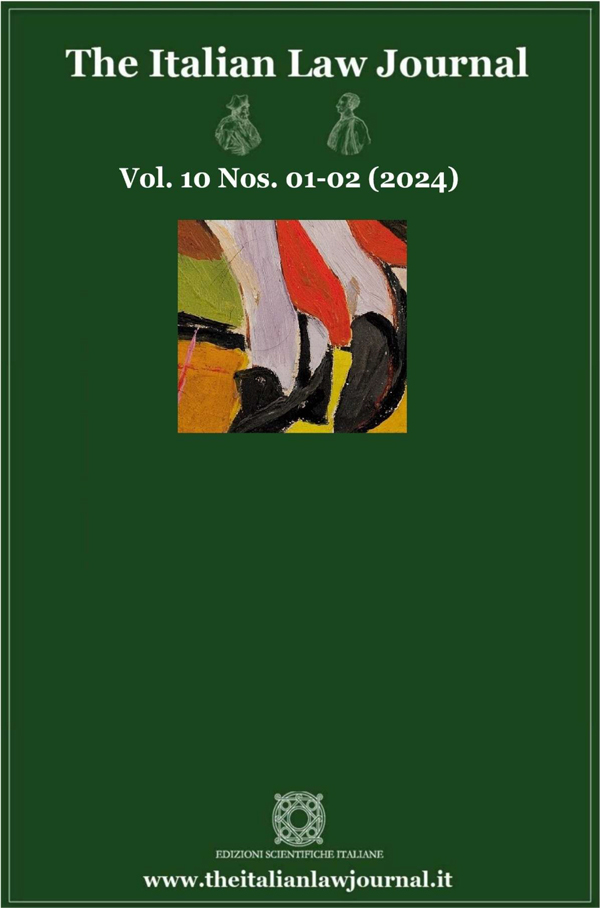11 THE ITALIAN LAW JOURNAL NO. 1 (2025)
Law and Political Economy in Italy: Secured Lending
by Jorge L. Esquirol Credit is key to business development. Access to credit, and lower-cost secured credit, may mean the difference between profits and losses, sustainability and bankruptcy. Allowing the conditional transfer of assets in order to guarantee loans is a comparative advantage that national legal rules can either enable or curtail. How these legal rules are constituted depend on the national political economy: whether explicit or implicit industrial policy, the accretion of past distributional choices embodied in the law, liberalization of specific legal instruments, and transnational pressure for harmonization. By way of example, Italian law has in the past been quite restrictive of using non-registered assets - such as business equipment and inventory - as collateral for loans and financing. Certain premier ‘Made in Italy’ products, however, benefited from special legislation that allows their stocks, warehoused during the aging process, to serve as loan guarantees. Prosciutto, cheeses, and more recently wine and spirits are part of that list. These differential laws direct a ‘subsidy’ of sorts to these products. This essay examines the historical Italian model of secured transactions law and consider its effects in promoting specific products, industries, and creditors. And, it considers the likely effect of the 2016 liberalization of secured transactions law that portends to erase these differentials. DOI 10.23815/2421-2156.ITALJ ISSN 2421-2156




























